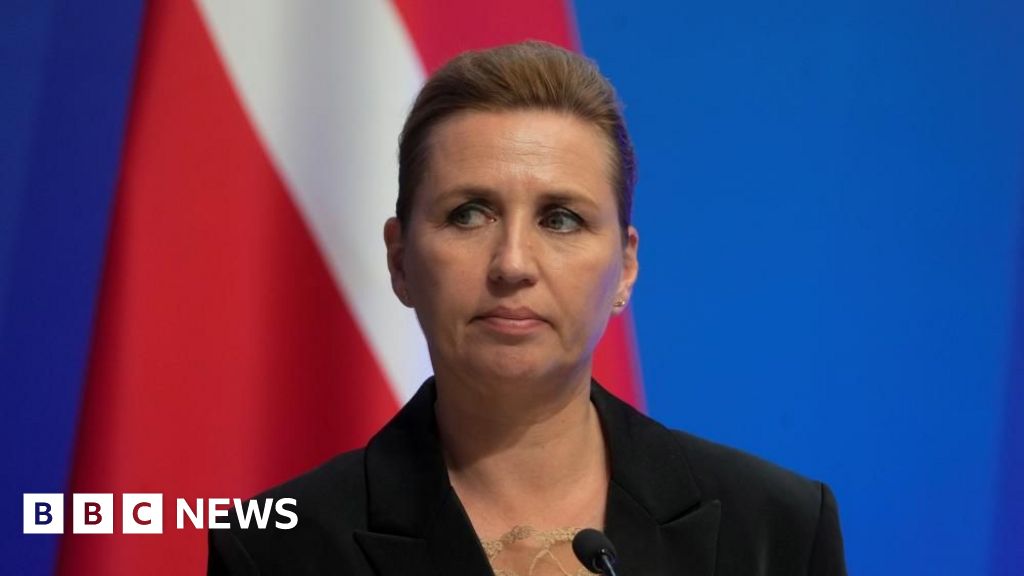Denmark's Prime Minister Mette Frederiksen has issued a long-awaited apology to the Greenlandic women and their families affected by what she called systematic discrimination during a contraceptive campaign.
During the 1960s and 70s thousands of Inuit women and girls as young as 12 were fitted with contraceptive devices, as part of a birth-control programme administered by Danish doctors.
We cannot change what has happened. But we can take responsibility, Frederiksen said of the scandal. On behalf of Denmark, I would like to say sorry, she said, acknowledging that victims had experienced both physical and psychological harm.
The scale of the birth-control programme was first brought to light in 2022, by an investigative podcast called Spiralkampagnen - the coil campaign. The device used is commonly known as a coil and is placed inside the womb, or uterus, to prevent pregnancy.
In the past few years, many women have come forward to say they were fitted with an intra-uterine device (IUD) without their knowledge or consent. Few had previously been aware of the contraceptive campaign, and the reports prompted shock and anger.
Records from the national archives showed that, between 1966 and 1970, 4,500 women and girls, some as young as 13, had an IUD implanted. Of these, it is unclear how many cases lacked consent. However, dozens of women have come forward sharing traumatic personal accounts and some were left sterile. A group of 143 women have since filed a lawsuit against the Danish state demanding compensation: 138 of them were under 18 at the time.
Use of the birth control was so widespread that Greenland's population growth severely slowed. Speaking on Danish television last December, the former Prime Minister of Greenland, Mute B Egede, said it was genocide. A formal inquiry was launched, and the findings will be released next month, following two years of investigation.
Mette Frederiksen acknowledged that the case had caused anger and sadness for many Greenlanders and many families and had damaged perceptions of Denmark. This case is one of several controversies involving the Danish treatment of Greenlanders, including forced adoptions, the removal of Inuit children from their families, and the legally fatherless, that have rocked relations between the Arctic territory and Copenhagen, and contributed to calls for independence. Greenland and Denmark agreed to investigate the coil scandal in 2022. At the time, Danish historian Soeren Rud told the BBC that the rationale for the policy was partly financial, but also the result of colonial attitudes.
Aaja Chemnitz, a Greenlandic MP in the Danish parliament, welcomed the apology and told the BBC it was important for both Greenlandic and Danish society to achieve closure. We also need to focus on compensation for the women, she continued. Of course, we're going to look into the report. We're going to follow up politically.\
During the 1960s and 70s thousands of Inuit women and girls as young as 12 were fitted with contraceptive devices, as part of a birth-control programme administered by Danish doctors.
We cannot change what has happened. But we can take responsibility, Frederiksen said of the scandal. On behalf of Denmark, I would like to say sorry, she said, acknowledging that victims had experienced both physical and psychological harm.
The scale of the birth-control programme was first brought to light in 2022, by an investigative podcast called Spiralkampagnen - the coil campaign. The device used is commonly known as a coil and is placed inside the womb, or uterus, to prevent pregnancy.
In the past few years, many women have come forward to say they were fitted with an intra-uterine device (IUD) without their knowledge or consent. Few had previously been aware of the contraceptive campaign, and the reports prompted shock and anger.
Records from the national archives showed that, between 1966 and 1970, 4,500 women and girls, some as young as 13, had an IUD implanted. Of these, it is unclear how many cases lacked consent. However, dozens of women have come forward sharing traumatic personal accounts and some were left sterile. A group of 143 women have since filed a lawsuit against the Danish state demanding compensation: 138 of them were under 18 at the time.
Use of the birth control was so widespread that Greenland's population growth severely slowed. Speaking on Danish television last December, the former Prime Minister of Greenland, Mute B Egede, said it was genocide. A formal inquiry was launched, and the findings will be released next month, following two years of investigation.
Mette Frederiksen acknowledged that the case had caused anger and sadness for many Greenlanders and many families and had damaged perceptions of Denmark. This case is one of several controversies involving the Danish treatment of Greenlanders, including forced adoptions, the removal of Inuit children from their families, and the legally fatherless, that have rocked relations between the Arctic territory and Copenhagen, and contributed to calls for independence. Greenland and Denmark agreed to investigate the coil scandal in 2022. At the time, Danish historian Soeren Rud told the BBC that the rationale for the policy was partly financial, but also the result of colonial attitudes.
Aaja Chemnitz, a Greenlandic MP in the Danish parliament, welcomed the apology and told the BBC it was important for both Greenlandic and Danish society to achieve closure. We also need to focus on compensation for the women, she continued. Of course, we're going to look into the report. We're going to follow up politically.\




















